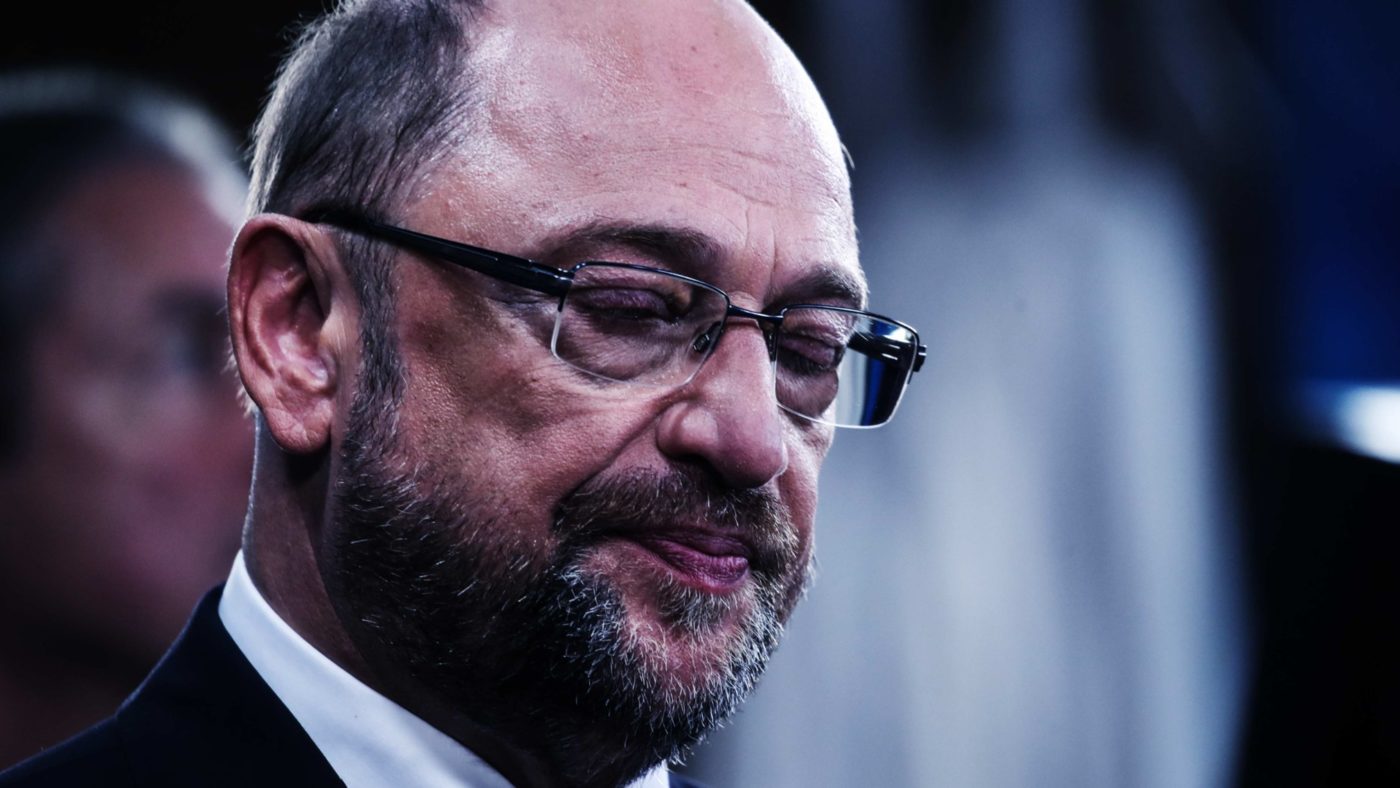State elections in the German state of Lower Saxony are normally a rather dull affair. Government responsibility sometimes moves from Christian Democrats (CDU) to Social Democrats (SPD) and back, with the small parties playing kingmaker. While the basic setup remains the same for this Sunday’s vote, its implications may reach farther. They may either sound the death knell for Martin Schulz, leader and failed Spitzenkandidat of the SPD, or help him and his party to get back on track.
Just seven months ago, in March, the SPD elected Martin Schulz as their new party chairman and lead candidate for the federal elections with 100 per cent of the vote. Returning to Germany from his post as president of the European Parliament, Schulz was heralded as the saviour of a struggling social democratic party. The SPD suddenly surged in the polls to come head-to-head with Angela Merkel’s “Union”, and the scent of change lay in the air.
Since then, the party has lost four elections and won zero. Schulz’s personal responsibility for the three lost elections at state level – Saarland in March, Schleswig-Holstein and North Rhine-Westphalia in May – is debatable, but nonetheless they reflect poorly on him. The lost federal election this September, which saw the SPD suffer its worst result since 1949, was a significant humiliation for Schulz.
Schulz may still popular among the rank and file of his party, but many in its upper echelons have lost trust in him. The upcoming elections in Lower Saxony are an opportunity for Schulz to show he can win. In that state the SPD currently polls at 33 per cent, one point ahead of the CDU and far ahead of all the others (FDP 10 per cent / Greens 10 per cent / AfD 7 per cent / The Left 5 per cent), so an electoral success is easily possible. Should, however, Sunday’s elections end in a fifth electoral defeat for the SPD under Schulz, and the loss of another state which for the last four years was governed by a coalition of the SPD and the Green Party, existing demands for a change of leadership may become even louder.
Unlike football managers, party leaders in Germany do not automatically get sacked for losing a couple of times in a row. Schulz’s problem is that his party has decided to pursue a path of total self-renewal following its historic defeat on 24th September. It is going into parliamentary opposition and wants to re-build itself as a thoroughly left-wing alternative to the CDU. Until now, this change in direction has become apparent mainly in the adoption of a significantly more aggressive rhetoric towards the other parties. How far it will be matched by changes in content remains to be seen.
The SPD is looking to British Labour and Jeremy Corbyn for inspiration. Differences between the political landscapes of the two countries render direct comparisons difficult. Where Corbyn could mobilise Labour’s outer left wing and make the rest of the party follow it, the SPD has to face the harsh reality that its traditional left-wing membership already deserted the party years ago to join socialist The Left. Its room to maneuver is thus limited. And the extent to which Martin Schulz and his team fit into this renewed image is questionable.
Schulz remains party chairman for now, and still has the party leadership’s public support. Yet, his recent confession that he considered resigning following the electoral disaster, and a revealing Spiegel story on his campaign have fueled doubts about his personality. The story, which features Schulz admitting that “people find me embarrassing”, paints the picture of a candidate accepting defeats weeks ahead of the final vote.
In his own party, Schulz already had to concede leadership of the SPD’s parliamentary group to Andrea Nahles, an internal competitor from the party’s left wing. He even failed to push through his confidant Hubertus Heil as party whip, a post given to Carsten Schneider instead. A strong leader in control of his party he is not.
While it is still too early to announce the definite end of Martin Schulz as leader of the SPD, it seems a question of “when” rather than “if” at this point. Should the SPD come in first in Sunday’s elections, granting Schulz the public images of victory poses he needs so much, he may hold out a bit longer. Maybe it can even herald the beginning of the SPD’s successful renewal. Should the SPD suffer another loss on Sunday, however, the upcoming party conference in December may be the last one Schulz experiences as the party’s leader.
The fate of the SPD will be crucial for the broader future of German politics. Should it fail to recover, leaving Angela Merkel’s CDU as the only major party in the centre, the influence of fringe parties such as the Alternative für Deutschland will grow. It would render Germany – and, by extension Europe – less stable.


